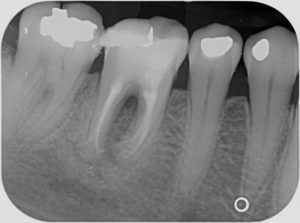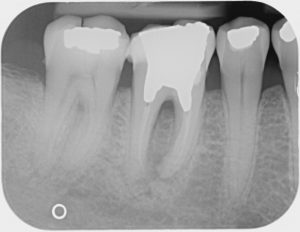Restorative procedures are a mainstay of dentistry. As such, you need a composite by your side that is able to tackle these everyday treatments but which is also versatile enough to be used in a wide array of indications.
Aesthetics, strength, durability and ease of use need to be considered too, and this means that finding an ideal composite is not as easy as you would expect.
So where to begin?
Streamline your armamentarium
Think of the composites you currently use in practice – do you find yourself throwing away multiple expired products? With so many shade options and composites with different properties available on the market, it’s easy to purchase many more than you need, resulting in high levels of waste and money that could’ve been better invested elsewhere.
As such, the first step towards finding your perfect everyday composite is to look at the products you use regularly and compare their properties, shades, opacities and other characteristics to see what is currently most useful to your patients. If you notice you only use a small shade selection, for example, it’s a good idea to stop investing in other shades that are used far less regularly.
This is also true for opacities and other qualities – it’s very easy to stock up on composites “just in case” you need them, but this quickly becomes wasteful.
What can the composite do?
Now you know what properties you want from a composite, you need to also consider what indications it can be used for. Much like shade and opacity, there are plenty of composites that have been designed for specific uses or areas of the oral cavity. An everyday composite should be able to provide a more blanket approach – not only having the characteristics to be effective throughout the oral cavity, but also the versatility to be a useful tool in many types of cases.
For example, can your current composite be reliably utilised in situations such as repairing enamel defects or acting as a core build-up for crown preparation? Can the composite be warmed for use in techniques such as injection moulding? A composite should be a highly adaptable part of your repertoire and able to play a role in simple and more complex cases alike.
Strength and durability
Of course, finding a composite that can provide both great strength and durability should be a priority. A composite that performs well under pressure can withstand the forces necessary for it to be used in posterior locations, and a durable composite will mean that patients will benefit from a solution that lasts for a significant amount of time.
As such, it’s a good idea to look at these properties when choosing between potential options. Product websites will provide technical data, but you should also look to see if any studies have been performed using the products and how they hold up against competitors. Clinical research is a valuable tool, and can often point you in the right direction.
Aesthetics
Although strength and durability are the foundation of a successful restoration, we can’t discount the need for excellent aesthetics. These days, patients want treatment that is natural-looking and that doesn’t stand out against existing dentition.
Therefore, shade selection, opacity and other details come into play. It’s a good idea to choose a composite available in the most popular Vita shades (A1, A2, A3) and perhaps with a Universal option. This way you can achieve beautiful aesthetics in the majority of cases without having to invest in a wider array of products.
Ease of use
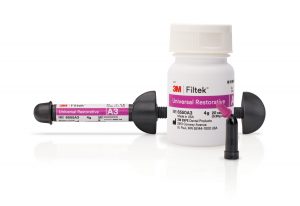 From a professional perspective, it’s essential to think about how easy a composite is to use. Does the delivery system have an ergonomic design? What about ease of placement? For something you will likely use on a very regular basis, ease of use soon becomes a top priority.
From a professional perspective, it’s essential to think about how easy a composite is to use. Does the delivery system have an ergonomic design? What about ease of placement? For something you will likely use on a very regular basis, ease of use soon becomes a top priority.
One solution that offers all of these benefits and more is Filtek Universal Restorative from 3M Oral Care. Suitable for use in a vast array of indications and offering strength, durability and excellent aesthetics, Filtek Universal Restorative also boasts an ergonomically designed delivery system with a unique capsule tip that aids easier placement, even in deep restorations. Plus, Filtek Universal Restorative also has unique shades available that are perfectly suited for bleached teeth and a Pink Opaquer shade that is ideal for masking metal and stained dentition.
Sort the basics
By evaluating your composite needs and finding a solution that can be used in the majority of your everyday restorative cases, you can strengthen your armamentarium and limit the amount of waste you generate. Plus, by investing in a composite with good strength, aesthetics and durability, you can guarantee your patients will be satisfied too.
For more information, call 08705 360 036 or visit www.3M.co.uk/Dental
3M representatives continue to be available via video calling technologies for your convenience.
3M and Filtek are trademarks of the 3M Company.



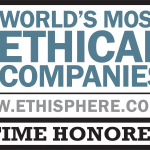

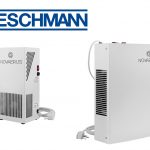


 From a professional perspective, it’s essential to think about how easy a composite is to use. Does the delivery system have an ergonomic design? What about ease of placement? For something you will likely use on a very regular basis, ease of use soon becomes a top priority.
From a professional perspective, it’s essential to think about how easy a composite is to use. Does the delivery system have an ergonomic design? What about ease of placement? For something you will likely use on a very regular basis, ease of use soon becomes a top priority.

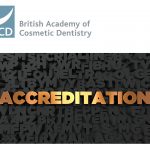
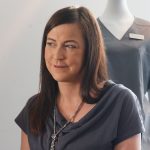
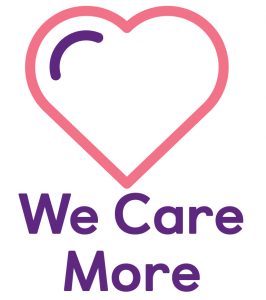 Nikki Bebbington, Senior HR Business Partner for Colosseum Dental UK, comments:
Nikki Bebbington, Senior HR Business Partner for Colosseum Dental UK, comments: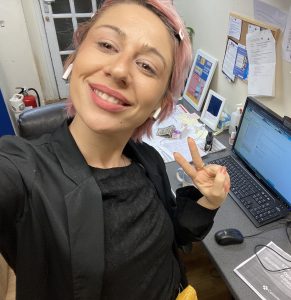 Cristina Virbanescu, practice manager at Walworth Road Dental Clinic, was one of many who enjoyed the virtual quiz, commenting:
Cristina Virbanescu, practice manager at Walworth Road Dental Clinic, was one of many who enjoyed the virtual quiz, commenting:
